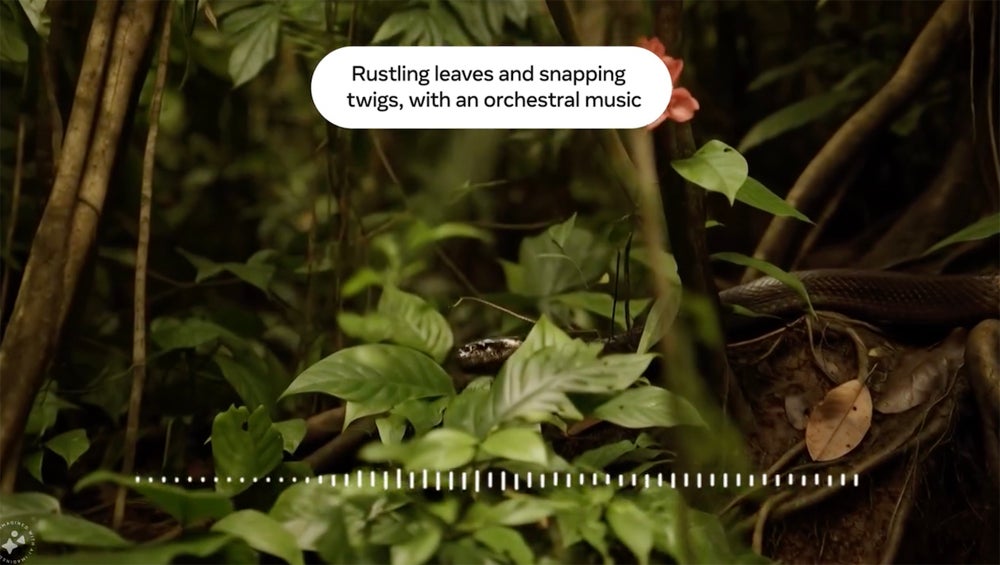AI Takes the Spotlight: Nobel Prize Winners & Meta's Movie Gen Unveiled
Welcome to this week's edition of Jumble, your go-to source for the latest in AI. This issue covers the winners of the 2024 Nobel Prize in Physics and Meta’s new video generation technology. It’s a packed week in AI and here’s what you need to know ⬇️

In today’s newsletter:
🏆 AI pioneers win Nobel Prize
🎬 Meta’s new AI video generation
🎃 Halloween costume planning with AI
😔 Samsung issues public apology
🍦 Get the scoop on the latest news
Meta, the parent company of Facebook and Instagram, has announced a groundbreaking AI model called Movie Gen. This new technology can create realistic video and audio clips in response to user prompts, potentially rivaling tools from leading media generation startups like OpenAI and ElevenLabs.
Key Features of Movie Gen
Movie Gen boasts impressive capabilities that push the boundaries of AI-generated content:
- Video Generation: The model can create videos up to 16 seconds long, featuring a wide range of subjects from animals swimming and surfing to people performing various actions.
- Audio Creation: Movie Gen can generate background music and sound effects synchronized with the video content, with audio clips lasting up to 45 seconds.
- Editing Capabilities: Users can manipulate existing videos, such as adding objects or changing environmental elements.

Demonstrations and Comparisons
Meta has provided samples showcasing Movie Gen's abilities:
- Videos of animals engaging in various activities
- Clips using real photos of people to depict them in different scenarios
- Edited videos demonstrating object insertion and environment modification
The company claims that Movie Gen performs favorably in blind tests compared to offerings from competitors like Runway, OpenAI, ElevenLabs, and Kling.
Implications and Concerns
While the entertainment industry sees potential in using such tools to enhance and expedite filmmaking, there are concerns about copyright infringement and the creation of deepfakes. Lawmakers have raised alarms about the potential misuse of AI-generated content in elections worldwide.
Meta's Approach to Movie Gen
Meta has stated that it is unlikely to release Movie Gen for open use by developers, citing the need to assess risks individually for each model. Instead, the company plans to:
- Work directly with the entertainment community and content creators
- Incorporate Movie Gen into Meta's own products in the coming year
As the AI landscape continues to evolve, Movie Gen represents a significant step forward in the realm of AI-generated media, with potential to reshape content creation across various industries. The 2024 Nobel Prize in Physics has been awarded to John Hopfield and Geoffrey Hinton for their fundamental discoveries in machine learning, which have laid the foundation for modern artificial intelligence.

Contributions to AI
Hopfield's work in 1982 demonstrated the possibility of creating a physical system inspired by the brain, consisting of a network of small computational neurons that could establish learning. Hinton expanded on this research, developing the earliest form of machine learning called the "Boltzmann machine" and showing that networks could be used to find patterns in data.
Impact and Significance
The laureates' discoveries have become integral to our daily lives, with applications ranging from facial recognition to language translation. Their work has also transformed scientific research, enabling machine learning systems to process vast amounts of data and identify patterns that would otherwise be undetectable to humans.
Hinton's Perspective on AI
Hinton, often referred to as the "godfather of AI," expressed both excitement and concern about the technology's future. He predicted that AI would have a "huge influence" on society, comparable to the industrial revolution, but also warned about potential risks, including the possibility of AI systems becoming uncontrollable.
Implications for the Future
The Nobel Committee's decision to award the physics prize to AI researchers highlights the growing importance and impact of artificial intelligence across various fields. As AI continues to advance, it promises to revolutionize industries such as healthcare while also raising important questions about its potential risks and ethical implications.

Here's a look at this week's AI highlights and lowlights:
⭐ Best: AI Model to Improve Diabetes Care in Bradford
Researchers from the University of York's Centre for Assuring Autonomy have developed an AI-based clinical decision-support model to enhance diabetes care in Bradford, an area with one of the UK's highest diabetes rates. The model, trained on 1.4 million patient records spanning four decades, aims to help clinicians personalize treatment plans for Type 2 Diabetes patients.
💩 Bust: AI Reveals Victim-Blaming Language in UK Family Courts
An AI analysis of family court judgments in England and Wales has uncovered concerns about use of victim-blaming and gender-biased language towards domestic abuse survivors. The herEthical AI project found judges often display an attitude of disbelief and make stereotypical assumptions about abuse victims. Examples include characterizing victims as "deeply troubled" or dismissing serious incidents as "pranks."
📝 Goodnotes Adds AI to Read and Explain Handwriting
Goodnotes, a digital notetaking app with 24 million users




















